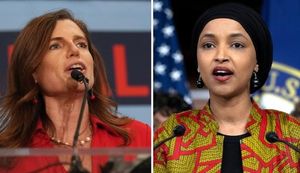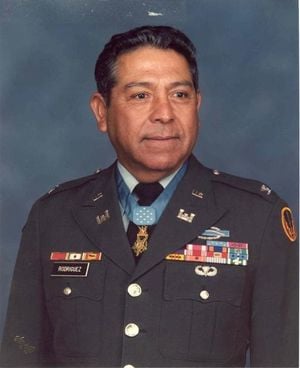Lee Hsien Yang, the youngest son of Singapore's founding father Lee Kuan Yew, has been granted political asylum in the United Kingdom, after alleging his family faces persecution from the Singapore government, led by his brother, Lee Hsien Loong, who was prime minister until earlier this year. This development marks yet another chapter in the long-standing and increasingly tense family feud surrounding the legacy of their deceased father, who played a pivotal role in shaping modern Singapore.
Lee Hsien Yang announced his asylum status via social media, outlining claims of systemic oppression exercised by the Singaporean authorities. "I never imagined in my worst nightmares I would end up becoming a refugee from the country my father built," he stated, illustrating the stark and personal toll of these political tensions. The UK government granted him asylum after determining he had a well-founded fear of persecution should he return to Singapore, following years of public discord with family dynamics playing out against the backdrop of governmental scrutiny.
The rift within the Lee family dates back to their father's death in 2015, when disputes arose over the fate of the family home at 38 Oxley Road. Lee Kuan Yew's will expressed wishes for the house to be demolished after his daughter, Lee Wei Ling, moved out, but Lee Hsien Loong sought to preserve it, proposing it as a potential heritage site. This conflict escalated publicly, particularly after Lee Hsien Yang and his sister accused their elder brother of leveraging the government to maintain control over the family's legacy.
Over the years, tensions grew, with accusations unravelling allegations of corruption within Singapore's political structure. Lee Hsien Yang, who is also an accomplished businessman and former CEO of Singapore Telecommunications, became increasingly vocal against his brother's government. His decision to openly align with the opposition Progress Singapore Party during the 2020 elections signified his departure from the once-cozy confines of Singapore’s political elite. This realignment positioned him as not only his brother's rival but also as part of the opposition's backbone aiming to reshape the governance of Singapore.
Throughout the public fallout, Lee Hsien Yang and his family claimed they faced various forms of persecution, including legal actions and police investigations reportedly initiated against them by their brother's government. Lee noted on social media, "The Singapore government’s attacks against me are documented and show the lengths to which I’ve been targeted, including prosecutorial charges against my son and disciplinary proceedings against my wife." This statement echoed sentiments of desperation, depicting their plight as deeply entwined with political dissent.
The assertions are vehemently denied by the Singaporean government, which contends his claims lack substance. Representatives have stated Lee Hsien Yang and his family are free to return to Singapore anytime without legal constraints, characterizing the allegations as unfounded. The lack of consensus highlights the challenging discourse surrounding political repression and personal safety within the nation.
Delving back to the initial family quarrel, Lee Kuan Yew, known for his last-say leadership style, left behind directives causing friction among his descendants. The final resting wishes applied to 38 Oxley Road were particularly contentious, turning this humble property—a single-story house—into the focal point of political drama. While the home is now viewed primarily as historical, it has become synonymous with the conflicts of its famed inhabitants, symbolizing legacy and governance all at once.
Lee Hsien Yang not only has dealt with public and familial fallout but has faced grave consequences within the legal system as well. His son, Li Shengwu, was previously prosecuted for contempt over social media commentary, spotlighting the state's approach to dissent and its potential silencing measures. Legal challenges continued last year, culminating with Lee Hsien Yang's defamation ruling against him by government officials, which he opted not to contest, signaling the complex interplay between political power and legal authority within Singapore's framework.
Although Lee Hsien Yang now calls the UK home, he remains fervently committed to opposing the ruling People's Action Party (PAP) and pushing back against what he labels systematic persecution. "I sought asylum protection as a last resort. I remain a Singapore citizen and hope to safely return home one day," he stated, reflecting the duality of his current life as both critiqued and safe away from his homeland.
This recent grant of asylum raises questions for both Singapore and the international community. What does it mean when members of the first family become political refugees? The Lee family's situation challenges the narrative of Singapore as a model of stable governance and reflects broader issues of power dynamics and civil rights within the country. Internationally, the situation has drawn public attention, prompting discussions about Singapore's political freedoms and the rights of citizens against their own government.
The multi-faceted issues surrounding the Lee family feud are now echoed throughout Singaporean society, as voters and civilians watch closely. The future of Lee Hsien Yang, his family, and the political structure their father established hinges on the intersection of personal liberty, political dissent, and the very tenets of governance now under scrutiny both at home and abroad.
Lee Hsien Yang's newfound role as a political refugee may be just the beginning of the narrative surrounding the Lee legacy, intertwined now not just with national identity but with significant inquiries about accountability, justice, and the power struggles inherent within family and nation—a saga yet to be fully revealed.



